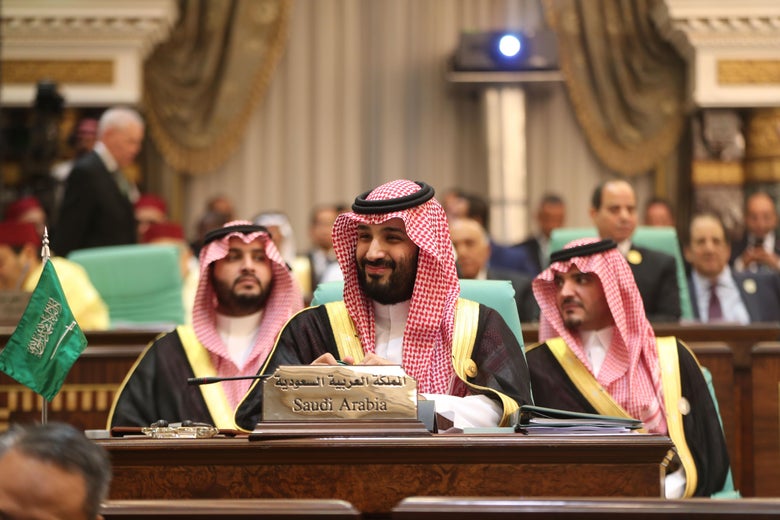A new U.S. president is causing Arab states to seek new friendships and reexamine old ones.
Late last month, Saudi Crown Prince Mohammed bin Salman offered an olive branch to his country’s main adversary. Speaking on Saudi television, the kingdom’s de facto ruler said he seeks “to have good relations” with Iran.
That represents at least a rhetorical retreat for the Saudis, who are fighting a vicious and destructive war against Iran’s Houthi proxies in Yemen and were public supporters of former President Donald Trump’s economic warfare against Iran. It was only three years ago that Prince Mohammed said that Iranian Supreme Leader Ayatollah Ali Khamenei “makes Hitler look good.”
Now President Joe Biden has made clear he will not give the Saudis a blank check. He has pursued a path for the U.S. to rejoin the 2015 Iran nuclear deal that would release billions of frozen revenues to Iran’s cash-strapped government.
So one explanation for the Saudis’ attempt at rapprochement with Iran is that America’s regional allies are adjusting to a new president with a new foreign policy. “They are reading the tea leaves,” said David Schenker, a senior fellow at the Washington Institute for Near East Policy who served as assistant secretary of state under Trump. The Saudis “don’t want to be left isolated or without U.S. support.”

Yet this explanation goes only so far. U.S. diplomats tell me that the Saudis began their quiet outreach to Iran in late 2019, after a devastating missile attack on their oil infrastructure in September. The crown prince pleaded with Trump to respond to Iran’s escalation, but Trump declined. As a result, lower-level talks between the Saudis and Iranians began. The only difference between 2019 and 2021 is that there is a new U.S. administration and Prince Mohammed has publicly acknowledged this diplomacy.
After the Iranian missile attack, according to my sources, the State Department urged the Saudis to hold tight. In January 2020, a U.S. drone strike killed Iranian General Qassem Soleimani, and afterwards, Trump sent more U.S. forces to the region in a show of deterrence.
By contrast, the Biden administration has encouraged the kingdom’s outreach to Iran. Schenker told me that it reminds him of the Arab outreach to Syrian dictator Bashar al-Assad in the late 2000s. After the U.S. hosted a regional Arab-Israeli peace conference in 2007, several Arab states, including Saudi Arabia, dropped their policy of isolation toward Syria as punishment for its role in the 2005 assassination of former Lebanese Prime Minister Rafiq Hariri. The Arab states went back to isolating Syria in 2011, after the regime launched a war against its own citizens that rages on to this day.
Then as now, the policy of the U.S. president influenced the relationships among its Arab allies. What’s different this time is that America’s Arab allies are now preparing for a Middle East where their most powerful friend is no longer around.
This explains why a country like the United Arab Emirates, the first Arab state to join the Abraham Accords with Israel, is also quietly pursuing a diplomatic dialogue with Iran. If the Biden administration follows through with its promise to begin America’s disentanglements in the Middle East, then Arab states will need as many friends and as few enemies as possible.
It will take a great deal of diplomatic skill for the UAE to balance a new friendship with Israel and a budding relationship with a regime committed to Israel’s destruction. Just last week, Iran’s Khamenei gave a speech making clear that Iran still would like to destroy the world’s only Jewish state.
Khamenei also had a message for the Arab states that have recognized Israel. Will the Jewish state’s “normalization of relations with a few weak, pitiful countries be able to help that regime?!” he asked on his English-language Twitter account.
For now, it’s clear that the Abraham Accords have helped Israel. Their lasting impact, however, depends on Israel’s new Arab friends coming around to the realization that feeding an Iranian crocodile only whets its appetite.
Source: Bloomberg